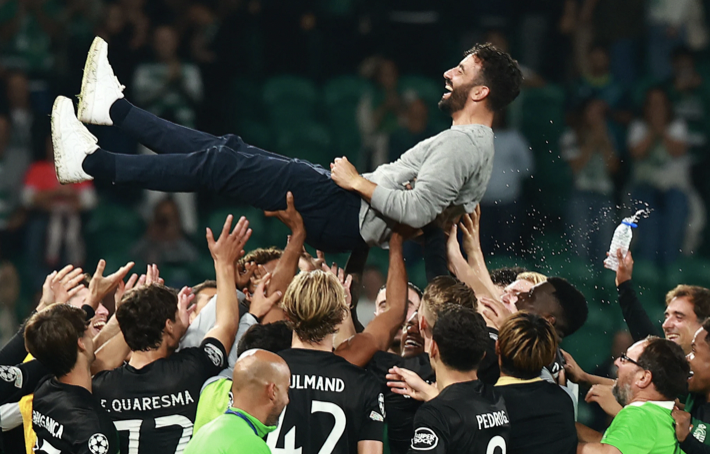November 15 – Manchester United-bound Ruben Amorim’s Sporting Lisbon side tops a new shot-taking ranking by the CIES Football Observatory, suggesting that the Red Devils have gained a real attacking asset by getting the Portuguese coach.
The study shows that Amorim’s Sporting take an average 9.09 shots inside the ‘danger zone’ (the central rectangle of the penalty area) each match, whilst conceding only two.
It’s been a key reason why the Portuguese side have won every league game this term (11/11) and stylishly beat Manchester City last week in the UEFA Champions League, where talisman Viktor Gyokeres netted a hattrick.
Meanwhile, Manchester United themselves rank poorly on the chart (10th in the Premier League), as they look to benefit from Amorim’s talent in accessing that area of the pitch.
Other teams that ranked particularly high in the study are CFL side Shanghai and Bundesliga giants FC Bayern Munich.
Manchester City are the top-rated Premier League side despite what has become a shaky season opening by their usual stellar standards.
Premier League’s Leicester City concede the second-most shots from the danger zone in the Top 5 leagues at 7.36, behind Bundesliga strugglers VfL Bochum who tally 7.70 shots conceded per game – over twice as many as they take themselves.
Interestingly, AS Monaco rank above French league leaders PSG, suggesting the Monegasques’ tactical change is paying off. Montpellier, who sit rock bottom of the table, unsurprisingly rank last in Ligue1.
Meanwhile, Hansi Flick’s rampant Barcelona side are top in the La Liga ranking (Real Valladolid at the opposite end), and Atalanta rank highest in Italy (Monza in last position).
CIES also presented data highlighting the gap between points achieved versus expected points for clubs, using a model based on the difference in shots taken and conceded within high-probability scoring areas per match and club.
According to these metrics, Scotland’s Aberdeen demonstrated the most significant positive gap, achieving 1.58 more points per game than expected based on shooting statistics alone. This suggests that Aberdeen has shown above-average efficiency in capitalising on chances, a factor that often suggests potential performance regression over time if efficiency returns to typical levels.
To see the full data, click here.
Contact the writer of this story, Harry Ewing, at moc.l1743578365labto1743578365ofdlr1743578365owedi1743578365sni@g1743578365niwe.1743578365yrrah1743578365


